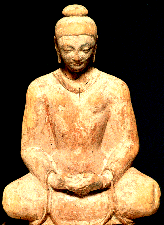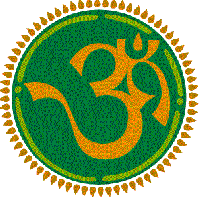The philosophy of religion differs from religious philosophy in that it seeks to discuss questions regarding the nature of religion as a whole, rather than examining the problems brought forth by a particular belief-system. It can be carried out dispassionately by those who identify as believers or non-believers.[3]
- 1. The Field and its Significance
- 2. The Meaning of Religious Beliefs
- 3. Religious Epistemology
- 4. Religion and Science
- 5. Philosophical Reflection on Theism and Its Alternatives
- 6. Religious Pluralism
- Bibliography
- Academic Tools
- Other Internet Resources
- Related Entries
There are a number of themes that fall under the domain of philosophy of religion as it is commonly practiced in academic departments in North America and Europe. The focus here will be limited to six: (1) religious language and belief, (2) religious diversity, (3) concepts of God / Ultimate Reality, (4) arguments for and against the existence of God, (5) problems of evil and suffering, and (6) miracles.
Table of Contents
- Religious Language and Belief
- Religious Diversity
- Concepts of God/Ultimate Reality
- Arguments for and against the Existence of God
- Problems of Evil and Suffering
- Miracles
- Conclusion
- References and Further Reading
Comparative Religion
Comparative religion is the branch of the study of religions concerned with the systematic comparison of the doctrines and practices, themes and impacts (including migration) of the world's religions. In general the comparative study of religion yields a deeper understanding of the fundamental philosophical concerns of religion such as ethics, metaphysics and the nature and forms of salvation. Studying such material facilitates a broadened and more sophisticated understanding of human beliefs and practices regarding the sacred, numinous, spiritual and divine.[1]
In the field of comparative religion, a common geographical classification[2] of the main world religions distinguishes groups such as Middle Eastern religions (including Iranian religions), Indian religions, East Asian religions, African religions, American religions, Oceanic religions, and classicalHellenistic religions.[2]
There also exist various sociological classifications of religious movements.
List of Regions and Spiritual Traditions
History of Religion
- Historiography of religion
- Religion and politics
- Christianity and politics
- Women as theological figures
- List of founders of religious traditions
- List of religious movements that began in the United States
Shamanism and ancestor worship[edit]
Monotheism[edit]
- See also Monotheism, Abrahamic religions.
Monism[edit]
Dualism[edit]
Religious Studies
Cognitive Science of Religion
Cognitive science of religion is the study of religious thought and behavior from the perspective of cognitive science, and often engages with evolutionary science, which it assumes is its foundation. The field employs methods and theories from a wide range of disciplines, including cognitive psychology, evolutionary psychology, cognitive anthropology, artificial intelligence, developmental psychology, and archaeology. Scholars in this field seek to explain how human minds acquire, generate, and transmit religious thoughts, practices, and schemas by means of ordinary cognitive capacities.
Cognitive ecology of Religion
Cognitive ecology of religion is an integrative approach to studying how religious beliefscovary with social and natural dynamics of the environment. This is done by incorporating a cognitive ecological perspective to cross-cultural god concepts.[1][2] Religious beliefs are thought to be a byproduct of domain-specific cognitive modules that give rise to religious cognition.[3] The cognitive biases leading to religious belief are constraints on perceptions of the environment, which is part and parcel of a cognitive ecological approach. This means that they not only shape religious beliefs, but they are determinants of how successfully cultural beliefs are transmitted.
Furthermore, cognition and behavior are inextricably linked,[4] so the consequences of cultural concepts are associated with behavioral outcomes (i.e., continued interactions with the environment).[1] For religion, behaviors often take the form of rituals and are similarly executed as a consequence of beliefs. Because the religious beliefs distributed in a population are relevant to their behavioral strategies and fine-tuned by natural selection,[5][6] cross-cultural representations of gods and their characteristics are hypothesized to address ecologically relevant challenges.[7] In other words, religious beliefs are thought to frequently involve solutions, insofar as evolved cognitive equipment can build them, to social and natural environmental problems faced by a given population.[2]
Evolutionary Origins of Religions
The evolutionary origin of religions and religious behavior is a field of study related to evolutionary psychology, the origin of language and mythology, and cross-cultural comparison of the anthropology of religion. Some subjects of interest include Neolithic religion, evidence for spirituality or cultic behavior in the Upper Paleolithic, and similarities in great ape behavior.
Evolutionary Psychology of Religion
The evolutionary psychology of religion is the study of religious belief using evolutionary psychology principles. It is one approach to the psychology of religion. As with all other organs and organ functions, the brain's functional structure is argued to have a genetic basis, and is therefore subject to the effects of natural selection and evolution. Evolutionary psychologists seek to understand cognitive processes, religion in this case, by understanding the survival and reproductive functions they might serve.[1]
Psychology of Religion
Psychology of religion consists of the application of psychological methods and interpretive frameworks to the diverse contents of religious traditions as well as to both religious and irreligious individuals. The extraordinary range of methods and frameworks can be helpfully summed up regarding the classic distinction between the natural-scientific and human-scientific approaches. The first cluster proceeds by means of objective, quantitative, and preferably experimental procedures for testing hypotheses regarding the causal connections among the objects of one's study. In contrast, the human-scientific approach accesses the human world of experience using qualitative, phenomenological, and interpretive methods, with the goal of discerning meaningful rather than causal connections among the phenomena one seeks to understand.
Psychologists of religion pursue three major projects: (1) systematic description, especially of religious contents, attitudes, experiences, and expressions; (2) explanation of the origins of religion, both in the history of the human race and in individual lives, taking into account a diversity of influences; and (3) mapping out the consequences of religious attitudes and conduct, both for the individual and for society at large. The psychology of religion first arose as a self-conscious discipline in the late 19th century, but all three of these tasks have a history going back many centuries before that.[1]
Attachment Theory and Psychology of Religion
Attachment theory and psychology of religion research explores the ways that a belief in God can fulfill the criteria of an attachment figure and examines how individual differences in attachment lead to correspondence or compensation pathways.
Conceptions of God
Conceptions of God in monotheist, pantheist, and panentheist religions – or of the supreme deity in henotheistic religions – can extend to various levels of abstraction:
- as a powerful, human-like, supernaturalbeing, or as the deification of an esoteric, mystical or philosophical entity or category;
- as the "Ultimate", the summum bonum, the "Absolute Infinite", the "Transcendent", or Existence or Being itself;
- as the ground of being, the monisticsubstrate, that which we cannot understand; and so on.
The first recordings that survive of monotheistic conceptions of God, borne out of henotheismand (mostly in Eastern religions) monism, are from the Hellenistic period. Of the many objects and entities that religions and other belief systems across the ages have labeled as divine, the one criterion they share is their acknowledgment as divine by a group or groups of human beings.
The Existence of God
The existence of God is a subject of debate in the philosophy of religion and popular culture.[1]A wide variety of arguments for and against the existence of God can be categorized as metaphysical, logical, empirical, subjective or scientific. In philosophical terms, the question of the existence of God involves the disciplines of epistemology (the nature and scope of knowledge) and ontology (study of the nature of being, existence, or reality) and the theory of value (since some definitions of God include "perfection").
The Western tradition of philosophical discussionof the existence of God began with Plato and Aristotle, who made arguments that would now be categorized as cosmological. Other arguments for the existence of God have been proposed by St. Anselm, who formulated the first ontological argument; Ibn Rushd (Averroes) and Thomas Aquinas, who presented their own versions of the cosmological argument (the kalam argument and the first way, respectively); René Descartes, who said that the existence of a benevolent God is logically necessary for the evidence of the senses to be meaningful. John Calvin argued for a sensus divinitatis, which gives each human a knowledge of God's existence. Atheists view arguments for the existence of God as insufficient, mistaken or outweighed by arguments against it, whereas some religions, such as Jainism, reject the possibility of a creator deity. Philosophers who have provided arguments against the existence of God include Friedrich Nietzsche and Bertrand Russell.
Paganism
Paganism (from classical Latin pāgānus"rural", "rustic", later "civilian") is a term first used pejoratively in the fourth century by early Christians for people in the Roman Empire who practiced polytheism[1]or ethnic religions other than Judaism. In the time of the Roman empire, individuals fell into the pagan class either because they were increasingly rural and provincial relative to the Christian population, or because they were not milites Christi(soldiers of Christ).[2][3] Alternative terms in Christian texts were hellene, gentile, and heathen.[1] Ritual sacrifice was an integral part of ancient Graeco-Roman religion[4]and was regarded as an indication of whether a person was pagan or Christian.[4] Paganism has broadly connoted the "religion of the peasantry".[1][5]
During and after the Middle Ages, the term paganism was applied to any non-Christian religion, and the term presumed a belief in false god(s).[6][7]
The origin of the application of the term pagan to polytheism is debated.[8] In the 19th century, paganism was adopted as a self-descriptor by members of various artistic groups inspired by the ancient world. In the 20th century, it came to be applied as a self-descriptor by practitioners of Modern Paganism, Neopagan movements and Polytheistic reconstructionists. Modern pagan traditions often incorporate beliefs or practices, such as nature worship, that are different from those in the largest world religions.[9][10]
Contemporary knowledge of old pagan religions and beliefs comes from several sources, including anthropological field research records, the evidence of archaeological artifacts, and the historical accounts of ancient writers regarding cultures known to Classical antiquity.
Most modern pagan religions existing today (Modern or Neopaganism[11][12]) express a world view that is pantheistic, panentheistic, polytheistic or animistic, but some are monotheistic.[13]
Animism
Animism (from Latin: anima, 'breath, spirit, life')[1][2] is the belief that objects, places, and creatures all possess a distinct spiritual essence.[3][4][5][6] Potentially, animism perceives all things—animals, plants, rocks, rivers, weather systems, human handiwork, and perhaps even words—as animated and alive. Animism is used in the anthropology of religion as a term for the belief system of many indigenous peoples,[7] especially in contrast to the relatively more recent development of organised religions.[8]
Although each culture has its own different mythologies and rituals, animism is said to describe the most common, foundational thread of indigenous peoples' "spiritual" or "supernatural" perspectives. The animistic perspective is so widely held and inherent to most indigenous peoples that they often do not even have a word in their languages that corresponds to "animism" (or even "religion");[9] the term is an anthropological construct.
Largely due to such ethnolinguistic and cultural discrepancies, opinion has differed on whether animism refers to an ancestral mode of experience common to indigenous peoples around the world, or to a full-fledged religion in its own right. The currently accepted definition of animismwas only developed in the late 19th century (1871) by Sir Edward Tylor, who formulated it as "one of anthropology's earliest concepts, if not the first".[10]
Animism encompasses the beliefs that all material phenomena have agency, that there exists no hard and fast[colloquialism] distinction between the spiritual and physical (or material) world and that soul or spirit or sentience exists not only in humans but also in other animals, plants, rocks, geographic features such as mountains or rivers or other entities of the natural environment: water sprites, vegetation deities, tree sprites, etc. Animism may further attribute a life force to abstract concepts such as words, true names, or metaphors in mythology. Some members of the non-tribal world also consider themselves animists (such as author Daniel Quinn, sculptor Lawson Oyekan, and many contemporary Pagans).[11]
Religion and Environmentalism
Religion and environmentalism is an emerging interdisciplinary subfield in the academic disciplines of religious studies, religious ethics, the sociology of religion, and theology amongst others, with environmentalism and ecological principles as a primary focus.
Theism
Theism is broadly defined as the belief in the existence of a supreme being or deities.[1][2] In common parlance, or when contrasted with deism, the term often describes the classical conception of Godthat is found in monotheism (also referred to as classical theism) – or gods found in polytheisticreligions—a belief in God or in gods without the rejection of revelation as is characteristic of deism.[3][4]
Atheism is commonly understood as non-acceptance or rejection of theism in the broadest sense of theism, i.e. non-acceptance or rejection of belief in God or gods.[5] The claim that the existence of any deity is unknown or unknowable is agnosticism.[6][7]
List of Ethnic Religions
Ethnic religions (also "indigenous religions") are generally defined as religions which are related to a particular ethnic group, and often seen as a defining part of that ethnicity's culture, language, and customs.
Folk Religion
In religious studies and folkloristics, folk religion, popular religion, or vernacular religioncomprises various forms and expressions of religion that are distinct from the official doctrines and practices of organized religion. The precise definition of folk religion varies among scholars. Sometimes also termed popular belief, it consists of ethnic or regional religiouscustoms under the umbrella of a religion, but outside official doctrine and practices.[1]
The term "folk religion" is generally held to encompass two related but separate subjects. The first is the religious dimension of folk culture, or the folk-cultural dimensions of religion. The second refers to the study of syncretisms between two cultures with different stages of formal expression, such as the melange of African folk beliefs and Roman Catholicism that led to the development of Vodun and Santería, and similar mixtures of formal religions with folk cultures.
Chinese folk religion, folk Christianity, folk Hinduism, and folk Islam are examples of folk religion associated with major religions. The term is also used, especially by the clergy of the faiths involved, to describe the desire of people who otherwise infrequently attend religious worship, do not belong to a church or similar religious society, and who have not made a formal profession of faith in a particular creed, to have religious weddings or funerals, or (among Christians) to have their children baptised.[1]
|
Philosophy of Religion |
||||||||||

|
Online Textbook by Philip A. Pecorino, Ph.D. |

|
||||||||

|
|
|

|

|

|
|
||||
|
Table of Contents |
||||||||||
| Dedication | ||||||||||
| Acknowledgements | ||||||||||
| Preface | ||||||||||
| How to Read this Text | ||||||||||
| Chapter 1 Overview | ||||||||||
| Chapter 2 Religions of the World | ||||||||||
| Chapter 3 Science and Religion | ||||||||||
| Chapter 4 Arguments for the Existence of God: Reason | ||||||||||
| Chapter 5 Arguments for the Existence of God: Experience | ||||||||||
| Chapter 6 The Problem of Evil | ||||||||||
| Chapter 7 The Existence of Souls and the Resurrection | ||||||||||
| Chapter 8 Religious Language and Worldviews | ||||||||||
| Chapter 9 Religion, Morality and Ethics | ||||||||||
| Chapter 10 The Essence of Religion: A Definition of Religion | ||||||||||
| WRITTEN ASSIGNMENTS | ||||||||||
| DISCUSSION TOPICS | ||||||||||
| BIBLIOGRAPHY | ||||||||||
| LINKS to INTERNET REFERENCE WORKS and WEBSITES | ||||||||||
|
|
||||||||||
|
|

|
|
|
|
|
|||||









No comments:
Post a Comment